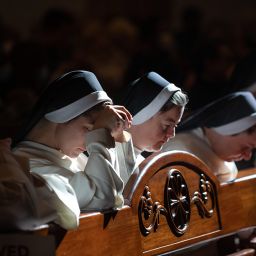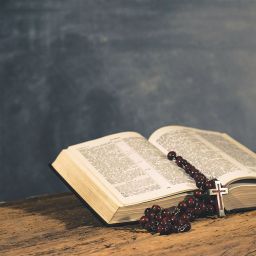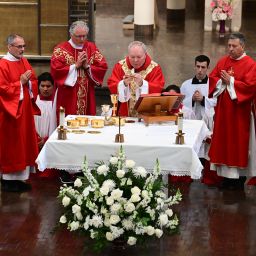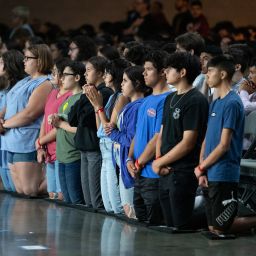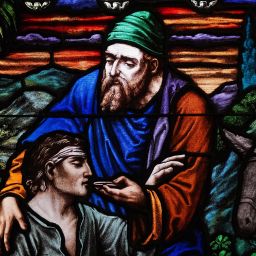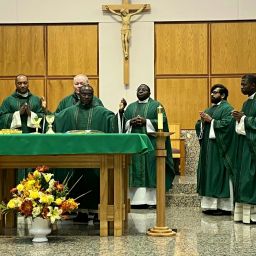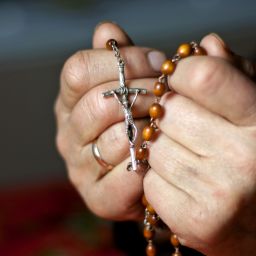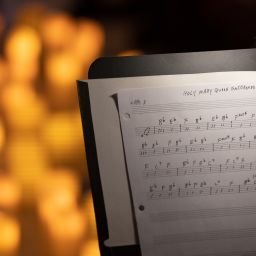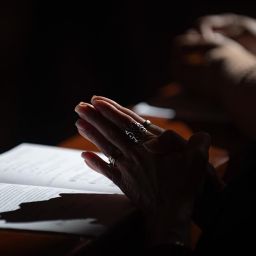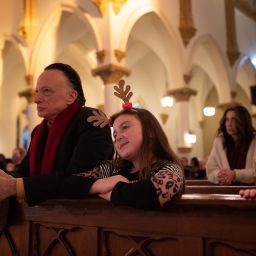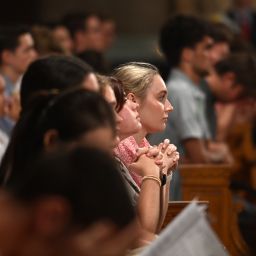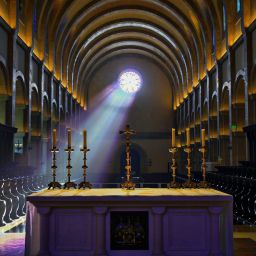By Father Jacob Dankasa
Special to The Texas Catholic
The Diocese of Dallas held its synod assembly in December. I was privileged to be a delegate at this historic four-day event filled with discussion, deliberation, exploration, and prayer. For me, it was a blend of human, intellectual, and spiritual engagement. The entire synod activity was thoughtful, emotional, and deeply spiritual. On a human level, it was also hectic! The atmosphere alternated between serenity and peace, tension and excitement, making the experience both engaging and unforgettable. Without revealing details beyond what is appropriate, I want to share my personal perspective on what I witnessed and felt — an experience that will differ for every delegate.
Listening to the comments, discussions, and testimonies of fellow delegates, I encountered a wide spectrum of emotions. To summarize, I would use words like honest, passionate, surprising, exciting, respectful, and frank to capture the spirit of the synod assembly. For me, the synod emphasized that in 10 years our diocese will not be structured solely by the bishop or priests, but will be shaped collaboratively by the faithful under the bishop’s guidance and in alignment with Church teachings. As the synod unfolded, it became evident that this was not a forum for airing personal agendas — it was a sacred space where the Holy Spirit guided us toward truth and love for the Church of the present and of the future.
The honesty and respect exhibited by delegates during the discussions were remarkable. While disagreements were inevitable, everyone listened attentively to others without interruption. From the beginning, it was evident that the synod was not solely about addressing what is flawed, but also about preserving what is good and enhancing what is great. One common misconception about assemblies like the synod is that they exist purely to enact change. While change may emerge where necessary, the synod’s essence lies in discerning the future of our local Church through the guidance of the Holy Spirit. It is a process rooted in prayerful listening and openness to transformation, rather than the advancement of personal ideologies.
The synod reaffirmed for me that it was not intended to be about individual desires or tightly held perspectives; it was about yielding to the Holy Spirit to shape the Church’s future. This attitude required a willingness to allow the Spirit to challenge and transform our thoughts and assumptions. Without this openness, the work of the Church can seem unappealing or stagnant.
One important takeaway for me was understanding that the fact that a resolution is supported by a majority in the synod is not automatically guaranteed implementation. We were reminded that the synod’s outcomes are recommendations to the bishop and not legally binding. This distinction gave the assembly a more spiritual tone, distinguishing it from a political or legislative process. The consultative nature of the synod allowed delegates to focus on discernment rather than on lobbying.
Now that the synod assembly is over, the next steps involve a discernment process that will be led by an implementation commission. This group will assist the bishop in evaluating which recommendations should become realities. Ultimately, the bishop’s decisions, informed by the synod’s findings and guided by the Holy Spirit, will chart the diocese’s path forward. The synod’s fruits will reflect the collaborative effort of the faithful, the work of the delegates, and the bishop’s discernment as the chief shepherd of our diocese.
I am filled with hope and excitement for the future. The synod reaffirmed the importance of trust – both in the action of the Holy Spirit and the wisdom of our diocesan leaders. Together, as the people of God in the Diocese of Dallas, we move forward in faith, eagerly awaiting the fruits of this sacred journey.
Father Jacob Dankasa is the pastor of Holy Family of Nazareth Catholic Church in Irving.

